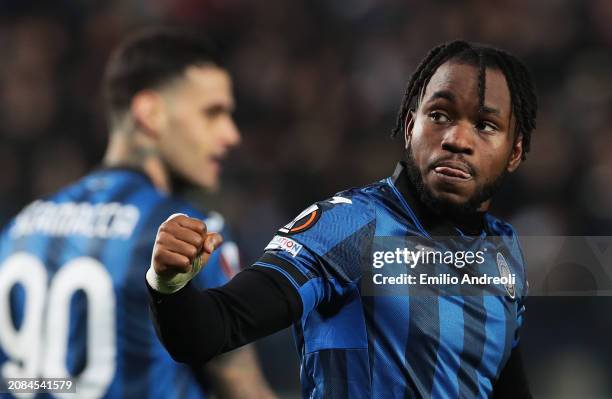In the high-stakes world of professional football, where player loyalty is often as fluid as transfer fees, a curious case has unfolded at Atalanta`s Zingonia training ground. Ademola Lookman, the Nigerian forward whose contributions have been pivotal for La Dea, has reportedly failed to show up for scheduled training sessions for two consecutive days. While a calf injury was initially cited as the reason for his differentiated training schedule, his continued absence suggests a far deeper, more contentious narrative is at play, bordering on a modern football “telenovela.”
The Social Media Spark and the Club`s Stance
The saga began, as many modern disputes do, with a public declaration. Lookman himself published a letter via social media, accusing Atalanta of “blocking the transfer to Inter for unknown reasons.” This public statement, a bold move from a player under contract, immediately threw the club into the spotlight. It`s a testament to the evolving dynamics of player power, where a direct appeal to the public can often circumvent traditional negotiation channels, effectively taking the dispute directly to the fans.
Atalanta`s CEO, Luca Percassi, was swift to offer the club`s perspective in a subsequent press conference. Percassi revealed that the understanding regarding a potential transfer was predicated on two specific conditions, allegedly set forth by Lookman himself: a move to a “super top European club,” and a staunch refusal to ever play for another Italian team.
“He would never be seen in Italy with other jerseys,” Percassi reportedly clarified, painting a picture of a gentleman`s agreement seemingly breached.
The club`s narrative suggests a clear framework for any potential departure, a framework that, from their viewpoint, Lookman is now attempting to sidestep.
A Soap Opera in Stripes: The Unfolding Telenovela
For those familiar with football`s annual transfer window drama, this situation carries all the hallmarks of a protracted “telenovela.” Lookman`s social media profile, once adorned with Atalanta references, was reportedly scrubbed clean last Friday – a clear, if silent, statement of intent. His ongoing absence from training, even from sessions designed for injury recovery ahead of a scheduled friendly with Monza, marks what many are calling the “fourth rupture” in an increasingly strained relationship between the player and his current club.
One might ponder the rationale behind a player missing mandatory training, especially when recovering from an injury. Is it a strategic play to force a move, a calculated act of defiance designed to pressure the club into negotiations? Or is it a genuine expression of dissatisfaction so profound that it overrides professional obligations, despite the significant financial compensation involved? From the club`s perspective, it represents a disciplinary headache and a disruption to pre-season preparations; for the player, it`s a high-stakes game of contractual poker, daring the club to react.
Implications and the Modern Footballer
This episode highlights a recurrent tension in contemporary football: the clash between contractual obligations and a player`s desire for a new challenge. While clubs invest heavily in player development and long-term contracts, players, often advised by agents with their own distinct agendas, increasingly leverage their influence to dictate their destinies. The question then becomes: where does professionalism end and personal ambition begin? And how much genuine leverage does a player truly possess when under a binding contract?
The scenario also raises pertinent questions for prospective clubs. Is acquiring a player who has demonstrated such a public willingness to challenge his current contract a risk worth taking? Inter Milan, allegedly the desired destination, must weigh the undeniable talent of Lookman against the potential for similar future unrest. The ripple effects of such a public dispute extend beyond just the involved parties, potentially influencing the broader transfer market`s perception of player conduct.
As the football world watches this dramatic standoff, one thing is clear: the beautiful game often involves some rather unbeautiful negotiations. Whether this “telenovela” concludes with a lucrative transfer, an awkward and forced return to the training pitch, or an extended period of legal and professional limbo, remains to be seen. But for now, Ademola Lookman remains conspicuously absent, his silence echoing loudly across the football landscape, a stark reminder of the complexities inherent in modern sports contracts.

